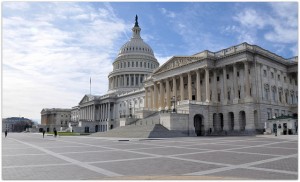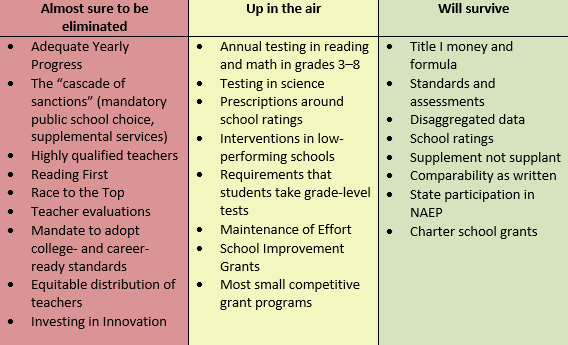Florida And The Congressional Debate Over Rewriting No Child Left Behind

saxen / Flickr
With Republicans in control of both houses, the long-overdue No Child Left Behind overhaul may happen.
No Child Left Behind needs an update. Born in 2002, the law expired in 2007 and has sat as Republicans and Democrats struggled to find agreement.
But Republicans now in control of both Congressional chambers seem ready to take on the task — and likely reduce federal education requirements on states.
The biggest question is whether the new law will require annual testing of students. NCLB requires states to annually test third grade through eighth grade students in reading and math. The law also requires math and reading testing at least once in high school and three science exams before graduating high school.
Florida was testing students annually before NCLB and using those results to grade public school and district performance.
Florida lawmakers say they support accountability — the umbrella of measurement and consequences that includes testing — and aren’t likely to get rid of annual testing, even if the feds say it’s OK.
But as the Florida Legislature looks to streamline testing requirements this spring, what happens in Washington could give them more options.
Congress is a long way from overhauling No Child Left Behind, but the Thomas B. Fordham Institute has performed some triage on the early debate. The think tank has divided ideas into things likely to be thrown out, things that could stay and things likely to stay.

The Thomas B. Fordham Foundation has taken a stab at handicapping which parts of NCLB could stay and which could go under a Republican Congress.
Among those things that could get axed, one would affect Florida more than others: eliminating grant programs such as Race to the Top, Investing in Innovation, School Improvement Grants and others.
Though Race to the Top was not technically part of NCLB, as the Fordham Institute notes, the grants did encourage states to adopt policies consistent with the law. Florida won a Race to the Top grant and has generally been willing to apply for federal grant programs, often to pay for things Florida is already doing. Those grant programs are less likely under a Republican Congress.
Education Secretary Arne Duncan says the new law should require annual testing and a requirement to evaluate teachers based, in part, on student test scores. Civil rights groups also support an annual testing requirement to prevent schools from ignoring low-performing students or schools.
UPDATE: Fordham’s Michael Petrilli updated his chart after the Senate committee released a draft version of the bill Tuesday. Here it is:


